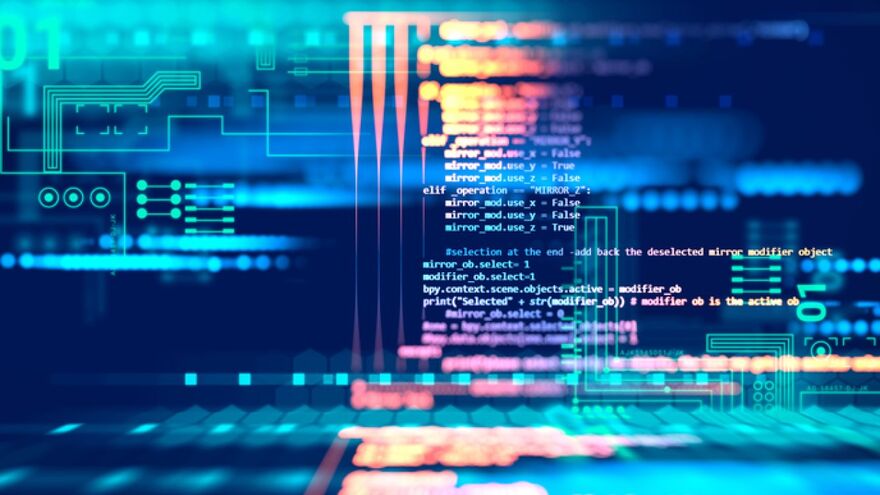ChatGPT is a natural language processor which creates humanlike conversational dialogue. ChatGPT is designed to take this humanlike dialogue and make it suitable for a wide range of applications, including generating ideas and brainstorming to personalised recommendations, summarising latest research topics, writing new songs and translating text. The list of capabilities that ChatGPT has is endless and is a tool that is suitable and accessible for a huge variety of individuals.
ChatGPT’s extensive reach does pose a potential concern for certain sectors. For example, questions have arisen over whether students can pass their university exams through the use of AI. Academics at the University of Bath considered the challenges and opportunities of ChatGPT and concluded that multiple choice questions would be answered really well but more complex questions which required critical thinking would not be as successful. There is uncertainty surrounding whether or not ChatGPT is considered “cheating” if used by university students - or is simply an assistant?
ChatGPT and Commercial Law
ChatGPT has the capability to draft contracts which, on the face of it, could save businesses both time and money. In this article we explore some of the issues arising from using ChatGPT as a legal assistant and consider the risks that arise from using ChatGPT to undertake the tasks of drafting contracts and writing legal advice.
Legal and Technical Expertise
Whilst ChatGPT can prepare a contract when asked, it can only do so in the context of similar contracts that it has come across before. ChatGPT can produce first drafts of contracts but those drafts are prepared with a lack of context and understanding, including of the legal risks of its outputs. This lack of understanding recognises that ChatGPT is restricted with regard to its technical expertise and this becomes considerably more challenging when it comes to more complex contracts. A complex contract could well be invalid as the contract ChatGPT has formed is a summary and aggregation of what went before, leaving it open to being at least an incomplete, if not inaccurate, contract due to ChatGPT’s inability to ask relevant questions or take into consideration the context behind the contract.
Legal Developments
Another aspect of ChatGPT to be aware of is that ChatGPT is a language tool that was trained on information up to 2021. The results may therefore not reflect nor be consistent with the recent changes of the law, unless the user instructs ChatGPT to check the data with a specific legislation and so has the potential to affect the accuracy of the contract, leaving it vulnerable to being invalid or unenforceable. However, it is important to note that ChatGPT is constantly learning and updating itself based on new data it encounters. Microsoft has now announced that ChatGPT will be integrated in its Bing search engine, recognising that ChatGPT is successful in providing current data and updated legal information on the caveat that the user is specific about asking it to do so or using an available website search engine.
Copyright
ChatGPT also poses a risk for copyright and intellectual property rights. ChatGPT’s terms of use state that all output generated by the model for a user is owned by the user and they will own the copyright in the output of information. This creates the potential for infringement going forward because content simply being available on ChatGPT does not mean that ChatGPT owns the material, and therefore users must be cautious. If any work is used without the owner’s permission then it could constitute copyright infringement.
Data Protection
ChatGPT may also pose data protection risks because it may process and release personal information of any users, in violation of data protections laws. With ChatGPT users have no control over their personal data and whether or not they allow it to be processed through ChatGPT. However, organisations and individuals must be aware that if they are inputting personal data then they are responsible for their processing obligations as a data controller placing the risk on the user to ensure that such transfer to ChatGPT is permitted under data protection law, which is a large risk for the user to undertake.
Liability
Another aspect to be aware of before entrusting ChatGPT is that the terms of use state that OpenAI is not liable for any damages arising from the use of the model. This raises the question as to who is actually liable for any document/drafting arising out of any legal document drafted through ChatGPT. This becomes particularly important where a contract drafted by ChatGPT is unenforceable or invalid because there remedy available from ChatGPT itself, leaving the individual/organisation vulnerable.
ChatGPT is undoubtedly beneficial for its versatility, speed and ability to use it to automate repetitive tasks. ChatGPT is developing at all times and as new versions arise it is getting better at combating previous issues. However it is also important to consider that there are limits to it and to be aware of the potential for ambiguities and inaccuracies stemming from using ChatGPT. It seems fair to suggest that as of right now ChatGPT is a useful tool to assist with your legal drafting, but not yet developed enough to take the legal reins!
Please contact Chloe Chambers at [javascript protected email address] or Paula Dumbill at [javascript protected email address] for more information on this subject.
The information on this site about legal matters is provided as a general guide only. Although we try to ensure that all of the information on this site is accurate and up to date, this cannot be guaranteed. The information on this site should not be relied upon or construed as constituting legal advice and Howes Percival LLP disclaims liability in relation to its use. You should seek appropriate legal advice before taking or refraining from taking any action.

